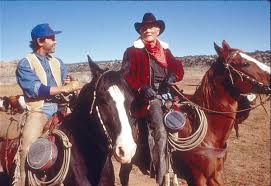
I totally get where Jesus is coming
from in this Sunday's gospel lesson. Of course, when you read this
story you have to understand what came just before it. Jesus' cousin,
John the Baptist, has just been beheaded by King Herod. Keep that in
mind when you read:
Now when Jesus heard this, he withdrew from there in a boat
to a deserted place by himself. But when the crowds heard it, they
followed him on foot from the towns. When he went ashore, he saw a
great crowd; and he had compassion for them and cured their sick.
When it was evening, the disciples came to him and said, ‘This is a
deserted place, and the hour is now late; send the crowds away so
that they may go into the villages and buy food for themselves.’
Jesus said to them, ‘They need not go away; you give them something
to eat.’ They replied, ‘We have nothing here but five loaves and
two fish.’ And he said, ‘Bring them here to me.’ Then he
ordered the crowds to sit down on the grass. Taking the five loaves
and the two fish, he looked up to heaven, and blessed and broke the
loaves, and gave them to the disciples, and the disciples gave them
to the crowds. And all ate and were filled; and they took up what was
left over of the broken pieces, twelve baskets full. And those who
ate were about five thousand men, besides women and children.
(Matthew 14:13-21)
Having just lost a
beloved relative myself, I understand how Jesus would just want to
get in a boat and spend a little time on his lonesome to sort stuff
out. Unfortunately, the neediness of people doesn't go away just
because we're not feeling in the pink, and needy folks have no sense
of boundaries. I'm sure Jesus would've loved to tell the crowd,
“Sorry, guys, but I'm not really myself today. My cousin just got
his head cut off by a blood-thirsty despot, and I'd really like to
take little more time off.” But that's not quite Jesus' style.
Jesus
knows that no matter how much we give of ourselves, God's generosity
is so great that we will always be able to go one step further. The
scripture says he had compassion on the crowds, and he started to
heal their sick. I'm sure this took some time, and I have to give
props to the disciples for recognizing that the crowd was going to
need to get something to eat. That was very compassionate of them.
BUT, when they take their concern to their boss, Jesus does an
uncharacteristic thing. He throws it back on them
to address the hunger situation.
Compassion,
of course, is all well and good, but if it isn't married to some kind
of genuine action it isn't worth a thimble of warm spit. The
disciples balk, telling Jesus that their own resources aren't
sufficient to handle such a huge issue. Jesus tells them to surrender
their lunch pail anyway.
Lots
of people speculate that you can explain the miracle of the
multiplied food by saying one act of generosity gave rise to
others—suggesting the disciples' sharing encouraged others to share
their resources. Maybe that's so, but for my money the original
miracle was the act of faith by which the disciples were willing to
part with their own provisions in the hope of aiding others.
Discipleship centered on Christ's love overcame fear of privation.
That's pretty impressive.
As
a parish pastor I deal with the fear of scarcity all the time. After
almost sixteen years in an urban congregation I've begun to recognize
that the precipice of fiscal doom is our natural habitat. We live on
the edge of faith and hope all the time. And because there is a
hurting world out there in need of Jesus' compassion—because we who
are in Christ also feel this compassion—we commit ourselves to
surrendering what little we have to doing the work of God's love.
I
no longer care what people are giving to the church. I care more
about why
they are giving. I don't care about institutional survival. I'm much
more interested in knowing that we are living out the gospel.
Let
the miracle be in us.




